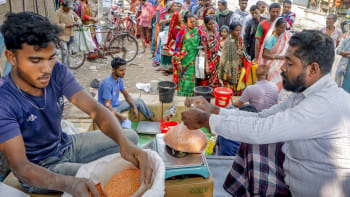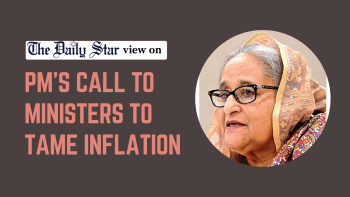Will Ramadan price control measures be effective?

We are glad to see that the newly formed cabinet is thinking ahead of time to keep prices of essential food items stable ahead of Ramadan. According to a report by The Daily Star, at an inter-ministerial meeting on Sunday, an array of price control measures was discussed. Given how price hikes become almost inevitable around the month of fasting, and how Bangladesh has been grappling with a raging inflation for well over a year, we believe the government has taken a step in the right direction, and with proper follow-ups, it can yield the desired results.
The meeting, as per our report, reviewed data on letters of credit (LCs) and imports and stocks of Ramadan staples such as chickpeas, lentils, sugar, edible oil, etc, and concluded that there was no substantial reason for any shortage or increasing prices of these items before or during Ramadan. The meeting also discussed duty cuts to keep imported food items like sugar and dates affordable, engaging with the relevant authorities to ensure smooth transport of goods from ports to kitchen markets, and regular monitoring to prevent manipulative practices, among other measures.
Speaking with reporters after the meeting, the newly minted finance minister made it clear that "drastic measures" would be taken against any attempt to destabilise the market. Such an approach against market manipulators, if indeed acted upon, is praiseworthy at a time when a significant segment of the population is struggling to get three square meals a day because of the inflation. With hardly any preventive measure in place, it is bound to get worse in the coming days.
With the holy month less than two months away, the market is already getting heated up. There have been reports of the prices of chickpeas, edible oil, dates, and all kinds of meat rising. Without strict actions from the authorities concerned, it is unlikely that the market will deviate on its own from the usual trend. To follow through with the prime minister's directive—and her party's electoral pledge—to bring down the prices of essentials, some tough calls must be made. So, while we appreciate that relevant ministries are willing to make those tough calls, any success will depend on how well and persistently the authorities can implement planned measures. We urge all stakeholders to cooperate in this regard.


 For all latest news, follow The Daily Star's Google News channel.
For all latest news, follow The Daily Star's Google News channel. 










Comments